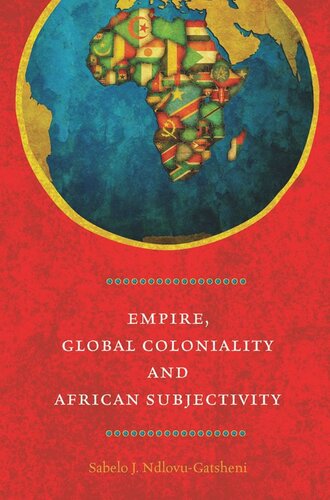

Most ebook files are in PDF format, so you can easily read them using various software such as Foxit Reader or directly on the Google Chrome browser.
Some ebook files are released by publishers in other formats such as .awz, .mobi, .epub, .fb2, etc. You may need to install specific software to read these formats on mobile/PC, such as Calibre.
Please read the tutorial at this link: https://ebookbell.com/faq
We offer FREE conversion to the popular formats you request; however, this may take some time. Therefore, right after payment, please email us, and we will try to provide the service as quickly as possible.
For some exceptional file formats or broken links (if any), please refrain from opening any disputes. Instead, email us first, and we will try to assist within a maximum of 6 hours.
EbookBell Team

4.1
90 reviewsGlobal imperial designs, which have been in place since conquest by western powers, did not suddenly evaporate after decolonization. Global coloniality as a leitmotif of the empire became the order of the day, with its invisible technologies of subjugation continuing to reproduce Africa’s subaltern position, a position characterized by perceived deficits ranging from a lack of civilization, a lack of writing and a lack of history to a lack of development, a lack of human rights and a lack of democracy. The author’s sharply critical perspective reveals how this epistemology of alterity has kept Africa ensnared within colonial matrices of power, serving to justify external interventions in African affairs, including the interference with liberation struggles and disregard for African positions. Evaluating the quality of African responses and available options, the author opens up a new horizon that includes cognitive justice and new humanism.